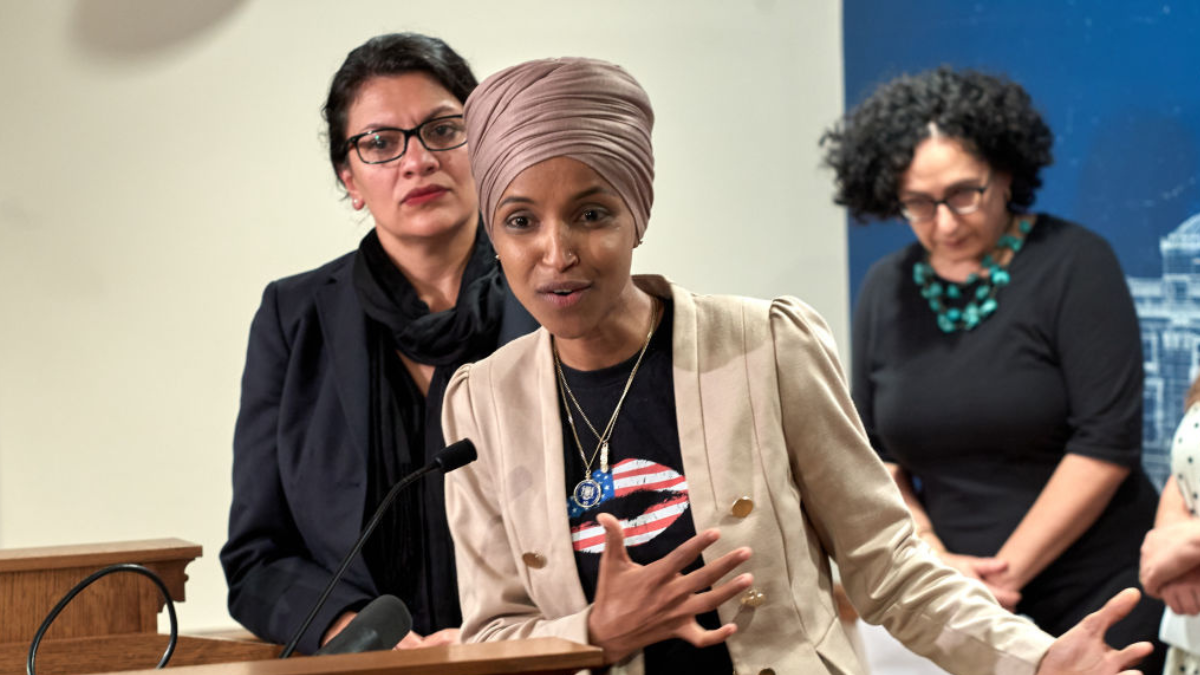Reports
Rashida Tlaib’s End Child Poverty Act: A Bold Step Towards a Brighter Future
Published
9 months agoon

In a country as prosperous as the US, the persistence of child poverty remains a harsh reality that demands urgent action. Congresswoman Rashida Tlaib introduced the “End Child Poverty Act” to create a universal child assistance program.
It shines a spotlight on the critical issue of child poverty. Tlaib proposed a comprehensive framework End Child Poverty Act (ECPA) to alleviate the suffering of countless young lives. American families under the current law get basic cash through the Earned Income Tax Credit, the Child Tax Credit, and the Credit for Other Dependents.
The ECPA wants to replace the current tax credit mess with a universal monthly child allowance. It will be set equal to the difference between the one-person poverty line and the two-person poverty line. The benefit would be paid out by the Social Security Administration using the same rules that the SSA currently uses to pay out SSI and Survivors benefits to children. The Act proposes an annual $600 fully refundable credit for adult dependents, and an annual $600/$1,200 fully refundable credit for single/married tax filers.
Tlaib believes this will dramatically reduce child poverty in the US, up to two-thirds. Analysts believe the primary component of the ECPA is the universal child benefit. Every child from zero to 18, for the year 2023, will receive $5,140 a year – that is $428 monthly, costing $382.1 billion. The overall cost of the ECPA for 2023 is $270.3 billion, representing 1 percent of annual GDP. It should be noted that the United States spends more than 3 percent of its annual GDP on the military.
ALSO READ: Judicial Reform: Benjamin Netanyahu Will Increase Israeli Settlements in Palestine, No Court Can Stop Him
The Congresswoman says the US government somehow always finds money to invest in weapons and forever wars, but can’t find the funding to ensure that no child goes hungry. An analysis by Matthew Bruenig, an American lawyer and policy analyst, and Max Ghenis, a policy entrepreneur, highlighted that the universal design of the child allowance would make the program dramatically easier to administer. It would not need to know the parent’s marital status, their income for the year, what tax filing status they will use, or other similar bits of information used in other programs.
The child benefit, once enrolled at birth, would go on every month until the child’s 19th birthday. Families will just need to interact with the SSA to update their banking information or the custody status of their child.
Ramez covers the News and Reports sections on The Gulf Independent. He holds a notable experience spanning more than six years, delivering timely and informative content on noteworthy developments in the vast Gulf region. Interest: Ramez is your dependable compass for the freshest, unbiased and elaborate coverage of the Middle East and Gulf regional news and events. He believes in the power of giving each story a unique perspective, subsequently inspiring conversation and promoting transparency. Education and Experience: Armed with a promising degree in Journalism and Digital Media from the prestigious American University of Sharjah in the UAE, Ramez has been helping audiences get a better understanding of the region's sensitive issues and massive potential. Email Id: https://twitter.com/RamezSpectnews
You may like

FM of Brazil extends gratitude to UAE for delivering urgent relief aid for flood victims

Harishankh – Kings in Concert: Maestros Shankar Mahadevan and Hariharan to land in Dubai this June

Recollecting superstar Tom Cruise’s major visits across the UAE

Beyond Makkah: Must-Visit Sites for a Soulful Hajj Experience in 2024

Al Wasl Win Big Against Al Nasr to Become President’s Cup Champions

Evolving technology helping UAE substantially increase plastic recycling rates
Trending
-

 News1 week ago
News1 week agoUAE President, Turkish Foreign Minister discuss Gaza, Cepa and bilateral ties
-

 News4 days ago
News4 days agoUAE announces ‘Blue Residency Visa’ as part of extended Year of Sustainability
-

 Trends4 days ago
Trends4 days agoQatar to Host Major Arab Football Cup Three Times – 2025, 2029 and 2033
-

 Trends3 days ago
Trends3 days agoal Nassr vs al Hilal: Saudi Pro League to see Ronaldo and Mitrovic lock horns for coveted trophy